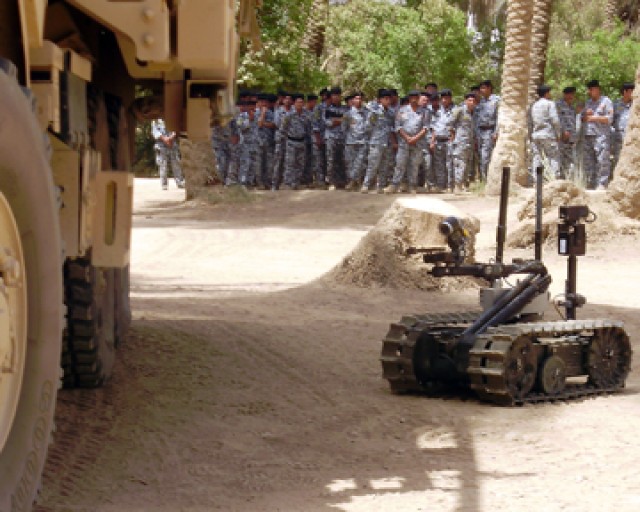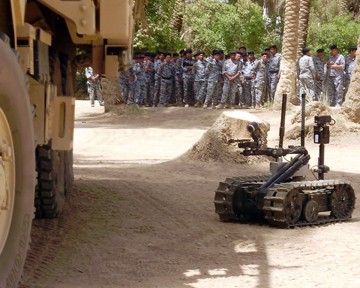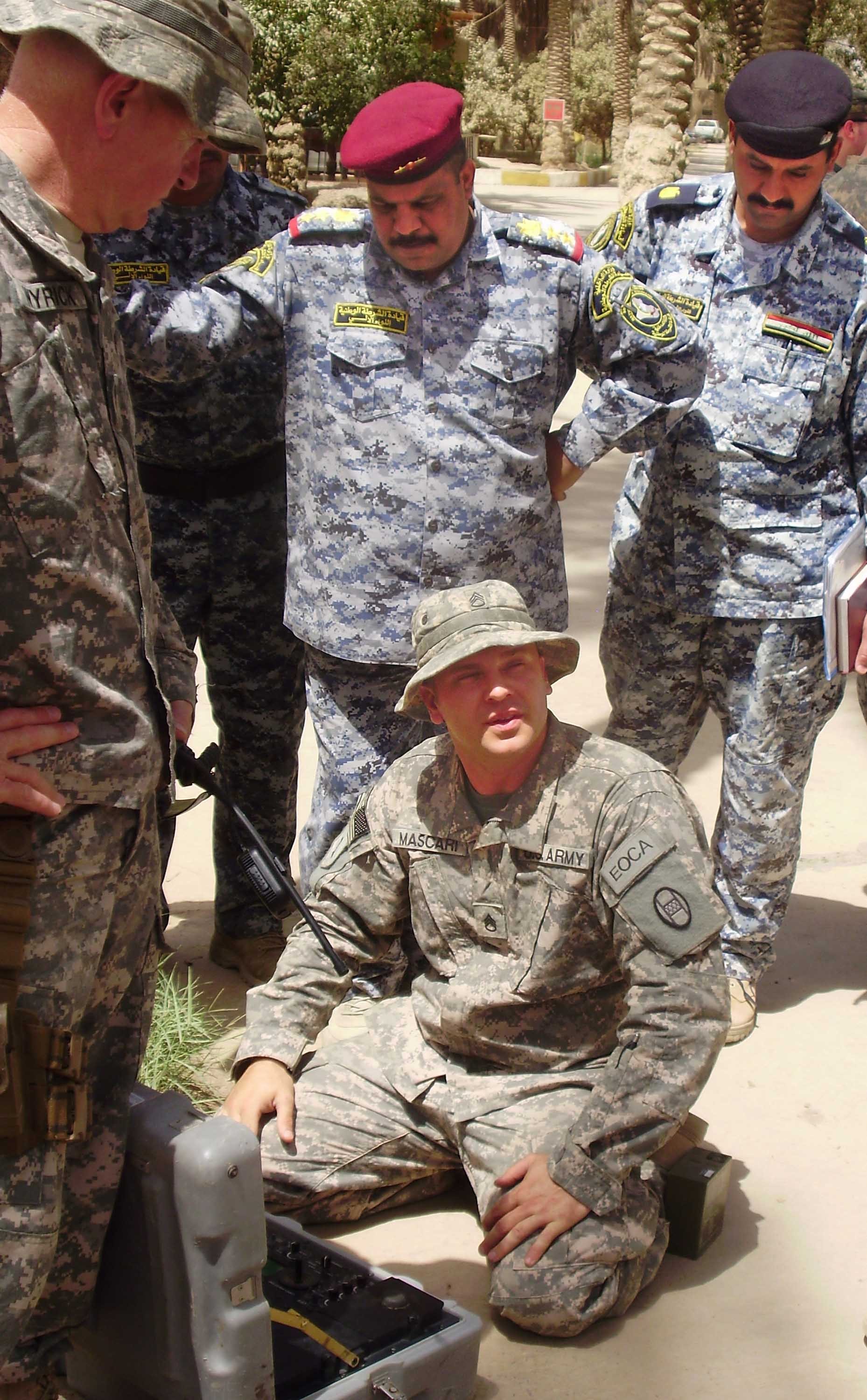BAGHDAD - Charlotte, N.C. native, Staff Sgt. David Macari, a route clearance section leader with Company E, 252nd Combined Arms Battalion, 30th Heavy Brigade Combat Team from recently took time to observe how the Iraqis have changed the fate of their country.
Macari served as part of Operation Iraqi Freedom from 2004-2005, and is now back in Iraq. His experiences then and now allow him to reflect on the changes in relationships between civilians and Iraqi Security Forces.
"The Iraq of today is not the same Iraq it was in 2004," said Macari. "The people are tired of things blowing up on their roads, [in] markets and any other place people gather. After six years of war, people are ready for some peace and quiet."
Improvised-explosive device causality rates have dropped for many reasons, including tips turned in by locals to their joint security services and the training that the Iraqi Security Forces have received.
"Our [Coalition and ISF] tactics have also changed. Instead of kicking in doors we stop knock and talk with people," said Macari. "We are pushing the ISF out front and letting them take the lead."
"Our training seems to be working. Seventy-five to 80 percent of IEDs are found before they hurt anyone," he said.
Training is an on-going mission and will not stop any time soon. Even as the drawdown continues, so will the partnership with ISF.
"We are very excited about the training we are doing," said Capt. August Melchior, Company E commander, from Wilson, N.C. "Right now we are trying to change how they handle the IEDs they find. They used to just kick or shoot at IEDs now they are handling them in a responsible manner."
The ISF are taking their new-found skills to another level. As they advance so will the training they receive. This is allowing ISF to take back the streets -- not just from Anti-Iraqi Forces but also from the Coalition combat forces, which pulled out of the cities on June 30.
Iraqi Security Forces have taken the lead, the training that Macari and his fellow Soldiers have given them are allowing them to be successful at this cornerstone of Iraq's history.
"I have a lot of respect for them (ISF)." said Macari "They are in a critical junction of Iraq's history. What they do now will shape Iraq for generations to come."




Social Sharing